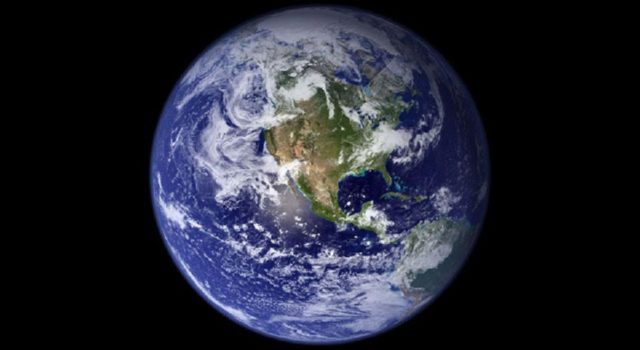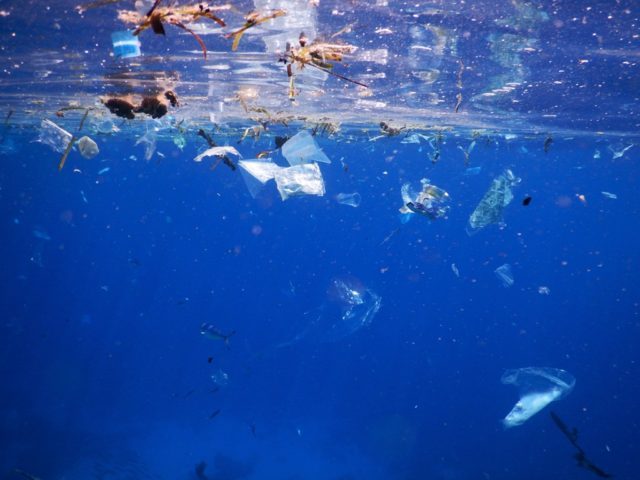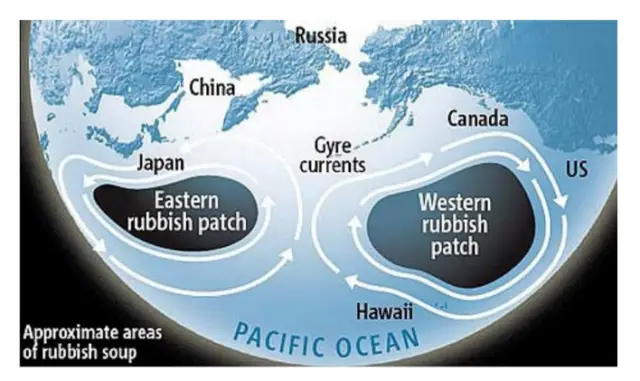From way up above, our planet looks like a blue marble. Its name, Earth, is a misnomer indeed. It should be called Aqua or something like that, as the blue color comes from the water that covers more than 70% of its surface. From way up above, the planet looks shiny and clean. It’s not.

~ How Can You Say That You’re Not Responsible? What Does It Have To Do With Me?
Humans have always played a vital role in nature. Sadly, our civilization has evolved in a way that is immensely destructive for the environment. For instance, in the last 2 hundred years alone, human activity has triggered the extinction of hundreds of species of animals and plants.
Our generalized attitude towards the planet has been “We own it, let’s use it”. Earth has been perceived as a big, inexhaustible warehouse. According to Sir Francis Bacon, the “goal of scientific experimentation was to gain total control over nature, through technology, for human benefit.”
Thus, through imbalance, overuse, and abandon, we have determined nature’s current state of affairs.
~ What Is My Reaction? What Should It Be?
After billions of years of evolution, our planet is an extremely complex entity, where every ecosystem is intertwined with the others. It has taken us some time to realize that our planet is also very fragile. Fortunately, over the last 45 years or so, that attitude has been changing and we are beginning to be more aware of the planet’s well-being.
We worry about smog and about our forests being decimated to build parking lots. We care about pandas, tigers, rhinos, whales… all of which might as well disappear within a generation or two. That surely is an improvement, right?
~ Confronted By This Latest Atrocity. Driven To Tears.
What about the ocean? It is the biggest and probably the least understood of Earth’s ecosystems. It regulates the climate, provides us with food and resources, with the air we breathe, even with inspiration and solace. In spite of all that, human activity has impacted the ocean in many nasty ways.
But we care, don’t we? Granted, we should be more careful about those pesky oil spills. We should stop sewage and industrial chemicals from entering the seas. But anyway, the oceans are so vast and deep that nothing we can do will really affect them. Wrong again.
There are plastics for instance. They are everywhere. We have come to take them for granted. It is like we are in love with them. And what is there not to love? They are lightweight, versatile, flexible, strong, and fairly cheap to produce. But after we use all that plastic, where does it go?
A recent study by the World Economic Fund estimated “that around 8 million metric tons of our plastic waste enter the oceans from land each year.” Plastics do not decompose like banana peels or newspapers do. They do not decompose at all. They just degrade into smaller debris. Some say plastics have a half-life of about 450 years, maybe more. As a result, a global tide of plastic pollution is choking the planet.

~ Hide My Face In My Hands, Shame Wells In My Throat.
Marine life has been severely affected by plastic pollutants. They injure and kill millions of fish, seabirds, marine mammals, and marine reptiles worldwide. Wildlife suffers fatalities due to ingestion, starvation, suffocation, infection, drowning, and entanglement.
When we think of plastics in the sea we probably think of some unsightly plastic bottles, six-pack rings, and similar items bobbing in the water or washed up on an otherwise pristine beach. There is plenty of that, so pristine beaches are becoming a thing of the past. And it gets worse.
Plastics can be so small that we can barely see them. Some come from the breakdown, mostly due to mechanical factors and UV radiation, of larger plastic garbage -they are called microplastics. Others are purposely made: microbeads.
These solid plastic particles (one millimeter or less in diameter) were created to supply more scrubbing power to cosmetic and cleansing products like exfoliating face lotions, body washes, and toothpaste. The problem is that they are so small that most wastewater treatment plants cannot filter them out. So, after we use any product containing microbeads, most of them wash into rivers, lakes and of course, the seas.
~ My Comfortable Existence Is Reduced To A Shallow, Meaningless Party.
Frontiers, a report from United Nations warns that microplastics in the sea represent a growing threat to human health. [“They] could potentially increase direct exposure of plastic-associated chemicals to humans and may present an attributable risk to human health,”
Every year, when fish and other animals eat microbeads and microplastics, hundreds of tons of plastic particles enter the food chain. That means they may show up back into our plates, as species like mackerel, mussels, anchovies, mullets, shrimps and many more (even zooplankton) have been found to eat the microbeads and we eat them in turn.
~ Seems That When Some Innocents Die, All We Can Offer Is A Page In Some Magazine
Studies indicate that when plastic microbeads (and other plastics) degrade and break down they release toxic chemicals. Their effects on the reproductive, neurological, and immune systems of fish and animals (and on ours too) are still being studied but the prospects are bleak. It seems like Mankind has shot itself in the foot… Again.
~ My Comfortable Existence Is Reduced To A Shallow, Meaningless Party.
The facts and figures alone are really overwhelming:
* Even though about 150 million tons of plastic are already polluting our oceans, the fact usually gets fewer media coverage than oil spills, volcanic eruptions or forest fires.
* Some sources estimate that by 2050 there will be more plastics than fish in the sea.
* Every minute, the equivalent of a truckload of plastic enters the ocean.
* 85% of all beach litter is made up of plastics.
* Every year, the EU generates more than 25 million tons of plastic waste. Less than 30% of it is recycled.
* There are several places in the oceans, commonly known as “patches” where plastic bottles, bags, flip flops, discarded or lost fishing nets (ghost nets), and other debris converge and accumulate. The most “famous” is the Great Pacific Garbage Patch between Hawaii and California.

* The 2 world’s biggest plastics polluters are China and Indonesia.
~ What’s To Become Of Our World? Who Knows What To Do?
Nearly 200 nations across the world, including the UK, European Union, Kenya, Costa Rica, Rwanda, Tanzania, Sri Lanka, and Bangladesh have taken a firm stand against plastics. Their initiatives include bans on plastic items such as drinking straws, microbeads, and plastic bags. Now there are stricter environmental laws, taxes, fines and more environment-geared education programs. No doubt there is a long way to go yet but it is a beginning.
Theme: Driven to Tears Song by The Police (1980)
Next article: The Kids To Save The Ocean Initiative
